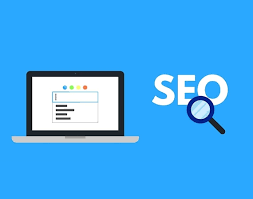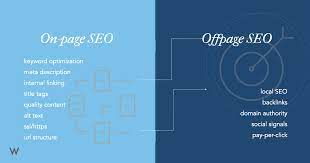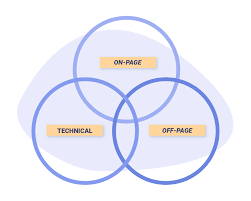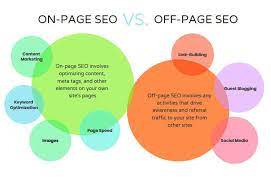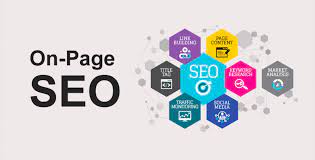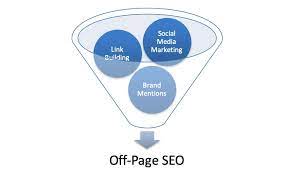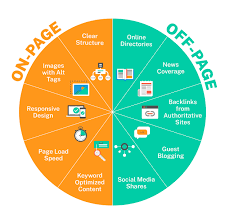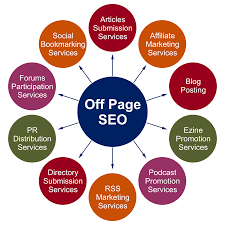Mastering On-Page Optimization Techniques for Enhanced SEO Performance
The Importance of On-Page Optimization in SEO
On-page optimization is a crucial aspect of search engine optimization (SEO) that focuses on optimizing various elements within a website to improve its search engine rankings and attract more organic traffic. By fine-tuning on-page elements, website owners can enhance their visibility in search engine results pages (SERPs) and provide a better user experience for visitors.
Key Components of On-Page Optimization:
Content: High-quality, relevant content is essential for on-page optimization. Content should be well-written, engaging, and informative, incorporating relevant keywords naturally to improve visibility.
Meta Tags: Title tags, meta descriptions, and header tags help search engines understand the content of web pages. Optimizing these meta tags with targeted keywords can improve click-through rates and overall SEO performance.
URL Structure: A clean and descriptive URL structure not only helps search engines crawl and index web pages efficiently but also makes it easier for users to navigate the site.
Internal Linking: Internal links connect different pages within a website, distributing link equity and helping search engines discover and index content more effectively.
Benefits of On-Page Optimization:
Improved Search Engine Rankings: Optimizing on-page elements signals to search engines that a website offers valuable content related to specific keywords, increasing the likelihood of ranking higher in SERPs.
Enhanced User Experience: By optimizing content, meta tags, and other on-page elements, websites can deliver a seamless user experience that encourages visitors to stay longer and engage with the site’s offerings.
Increased Organic Traffic: Higher rankings in search results lead to increased organic traffic as more users discover and visit the optimized website through relevant search queries.
Tips for Effective On-Page Optimization:
- Create unique, valuable content that addresses user intent
- Incorporate relevant keywords naturally throughout the content
- li.Ensure fast loading times for improved user experience
- li.Optimize images with alt text using target keywords
- li.Structure content with proper headings (H1-H6)
- li.Implement responsive design for mobile-friendliness
-
Essential FAQs on On-Page Optimisation for Effective SEO
- What is on-page optimization?
- Why is on-page optimization important for SEO?
- What are the key components of on-page optimization?
- How can content be optimized for on-page SEO?
- What are some best practices for on-page optimization?
What is on-page optimization?
On-page optimization refers to the process of strategically enhancing various elements within a website to improve its search engine visibility and user experience. It involves fine-tuning content, meta tags, URL structures, internal linking, and other on-page factors to ensure that a website is effectively indexed and ranked by search engines. By focusing on on-page optimization, website owners can align their content with relevant keywords, create a seamless browsing experience for visitors, and ultimately boost their organic traffic and search engine rankings.
Why is on-page optimization important for SEO?
On-page optimization plays a pivotal role in SEO due to its direct impact on a website’s search engine rankings and overall visibility. By fine-tuning on-page elements such as content, meta tags, URL structure, and internal linking, website owners can signal to search engines the relevance and quality of their web pages. This, in turn, increases the likelihood of ranking higher in search engine results pages (SERPs) for targeted keywords. Additionally, effective on-page optimization not only improves search engine rankings but also enhances user experience by providing valuable content and easy navigation. Ultimately, prioritising on-page optimization is essential for boosting organic traffic, attracting more visitors to the site, and achieving long-term SEO success.
What are the key components of on-page optimization?
When it comes to on-page optimization, understanding the key components is essential for improving a website’s search engine visibility. The primary elements of on-page optimization include high-quality and relevant content, well-structured meta tags such as title tags and meta descriptions, a clean and descriptive URL structure, effective internal linking to connect pages within the site, and optimized images with alt text. By focusing on these key components, website owners can enhance their SEO performance, attract more organic traffic, and provide a better user experience for visitors navigating their site.
How can content be optimized for on-page SEO?
To optimize content for on-page SEO, it is essential to create high-quality, relevant content that aligns with the target keywords and user intent. Start by conducting keyword research to identify relevant terms and phrases that your audience is searching for. Incorporate these keywords naturally throughout the content, including in the title tag, meta description, headings, and body text. Ensure that the content is well-structured with proper headings (H1-H6) to improve readability and help search engines understand the hierarchy of information. Additionally, use internal links to connect related pages within your website and provide additional context for both users and search engines. By focusing on creating valuable content that is optimized for specific keywords, you can enhance on-page SEO performance and attract more organic traffic to your website.
What are some best practices for on-page optimization?
When it comes to on-page optimization, following best practices is essential to enhance your website’s visibility and user experience. Some key practices include creating high-quality and unique content that addresses user intent, incorporating relevant keywords naturally throughout the content, optimizing meta tags with compelling titles and descriptions, using descriptive URLs that reflect page content, ensuring fast loading times for improved user experience, optimizing images with alt text using target keywords, structuring content with proper headings (H1-H6), and implementing responsive design for mobile-friendliness. By adhering to these best practices, website owners can improve their search engine rankings, attract more organic traffic, and provide a seamless browsing experience for visitors.
